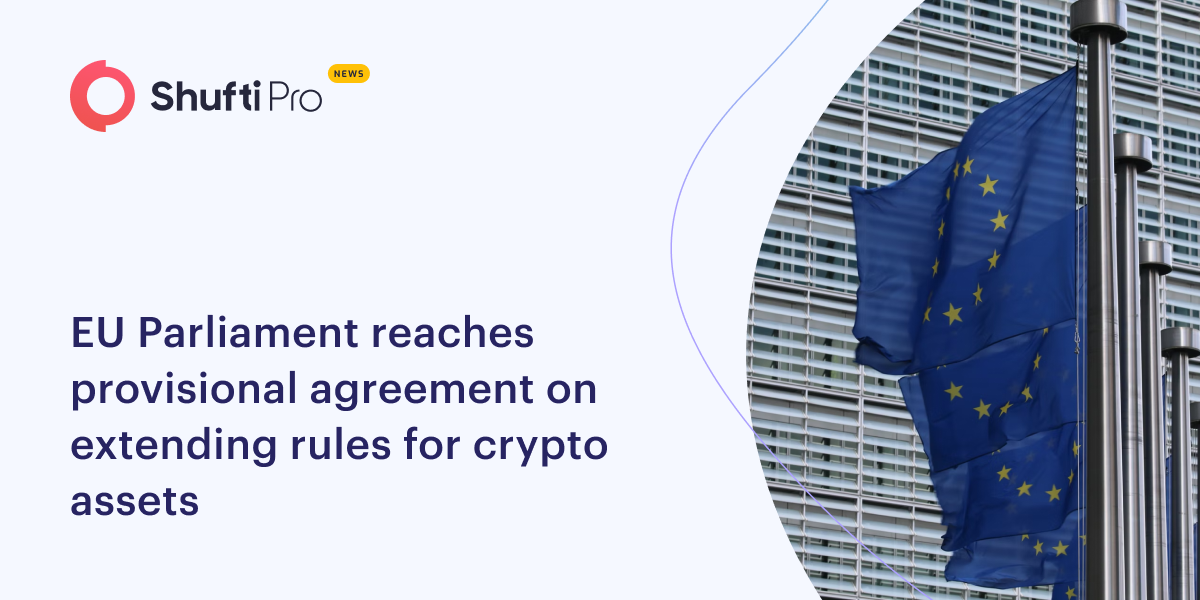EU Parliament Reaches Provisional Agreement on Extending Rules for Crypto Assets

The Council Presidency has reached a provisional agreement with the EU Parliament regarding the rules for the transfer of crypto assets
In line with AML compliance regulations, the European council is increasing the restrictions to prevent the misuse of cryptocurrencies. An interim agreement was reached between the European Parliament and the negotiators of the European Council as a proposal that extends the scope of the rules in regard to the transfer of crypto assets.
The addition of the new travel rule will confirm the financial proportional framework in compliance with the in-demand international standards regarding the exchange of crypto-assets in specific recommendations 15 and 16 of the global anti-money laundering and terrorist financing watchdog, FATF. The introduction of the new principle is timely in the present geopolitical situation.
This redefining aims to add a general obligation for all the crypto asset service providers. This enables a collection and makes accessible certain information in reference to the originator and the beneficiaries of the transfers of crypto assets they operate. As it is the main flow of the current service providers for wire transfers. This assures the traceability of the crypto-asset transfers in order to identify and block all the transfers that might be possibly suspicious and involve risks.
With this new provisional agreement, the EU authorities will be able to deal with the threats of money laundering and terrorist financing which are carried with respect to new approaches and tactics. The new principle will help ensure the reconciling competitiveness and security of the investor and the consumer with the added protection of the financial integrity of the internal market.
The accepted agreement requires full-fledged originator information to travel with the transfer of crypto-assets, this does not involve the amount of the assets being transacted. There are other requirements that are specified for the transfers between the crypto-assets service providers and un-hosted wallets.
In regard to the security of the data, the co-legislators agreed on the GDPR (General Data Protection Regulation) principles which will remain applicable to the transfers of funds. The co-legislators also accepted the urgency to ensure the traceability of crypto-asset transfers and chose to align with the regulations as per the MiCA principle (Markets In Crypto Assets).
Suggested Read: EU Parliament to Consider Black-Listing Switzerland After Credit Suisse Leaks

 Explore Now
Explore Now













